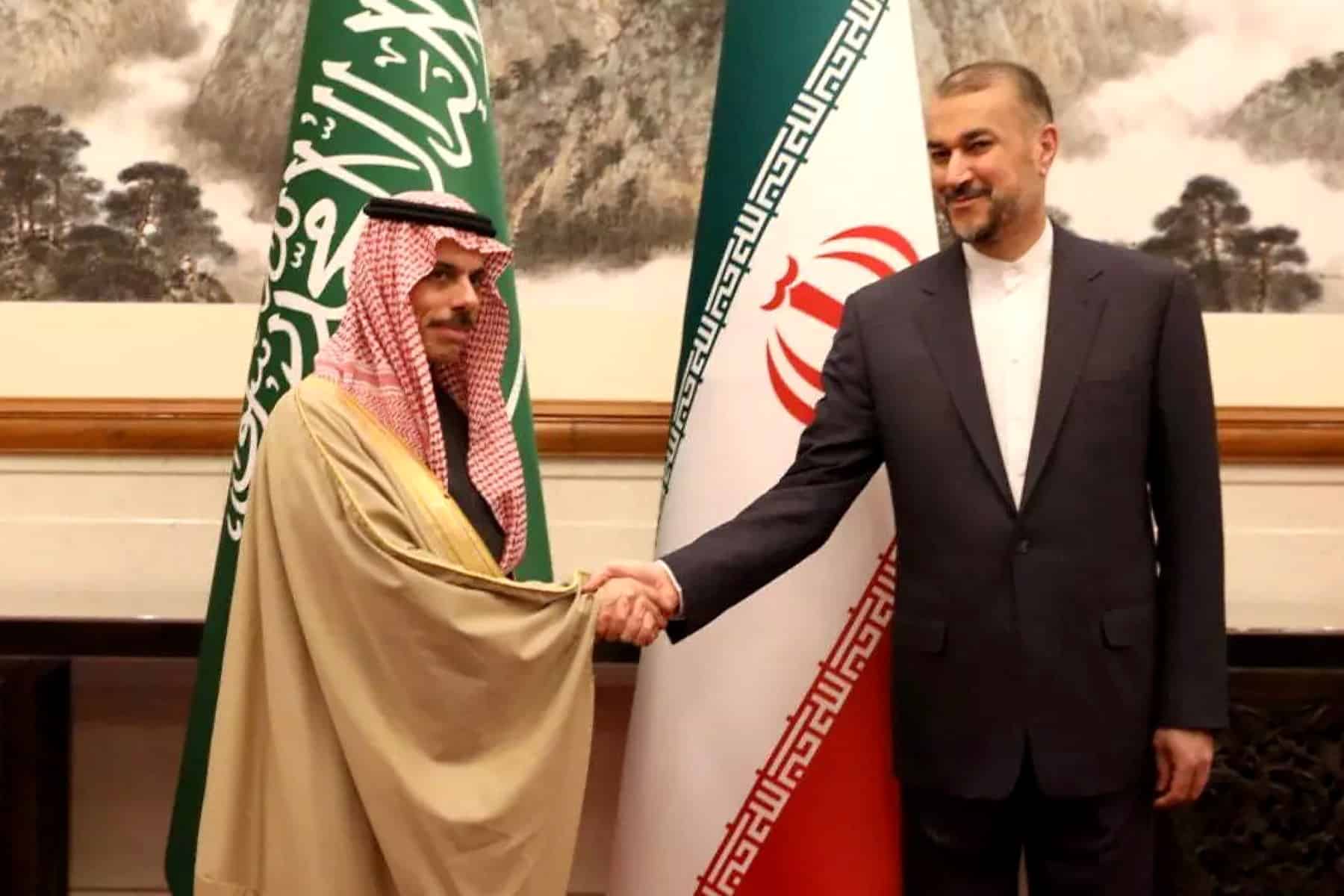DUBAI, UAE — On March 10, Saudi Arabia and Iran announced the resumption of diplomatic relations after a China-brokered deal. The ties between the two countries remained severed for seven years which saw them take sides in some of the worst regional conflicts.
The foreign ministers of the two countries affirmed that the agreement would contribute to achieving security, stability and prosperity in the region and affirmed their keenness to strengthen bilateral relations.
TRENDS asked its Twitter followers whether the agreement is positive for the Middle East region.
Fifty-nine percent of the voters said the agreement would improve the situation, while 24 percent voted ‘no’. The rest are not sure if the deal will be positive for the region.
Do you think the agreement between #Iran and #SaudiArabia, mediated by #China, is positive for the #MiddleEast region?#TRENDSpoll #TRENDSsurvey @IRIMFA_EN @KSAmofaEN @MFA_China
— TRENDS (@mena_trends) May 1, 2023
The majority of the voters were from Egypt (68.1 percent), followed by Kuwait (14.8 percent), Qatar (6.5 percent), the United Arab Emirates (5 percent), Lebanon (3.8 percent) and 1.8 percent were from other countries.
The majority of the voters were in the 20-29 age group (41.3 percent), followed by 30-39 years (37.3 percent), 40-49 years (13.5 percent) and only 8 percent of the voters were 50 and above.
Previous Agreements
Saudi Arabia and Iran also stressed the activation of two previous agreements between them: the security cooperation agreement dating back to 2001 and the 1998 general cooperation agreement.
The two countries signed the General Agreement on Cooperation in the fields of economy, trade, investment, technology, science, culture, sports and youth on May 27, 1998.
The agreement also included encouraging and facilitating the investments of the citizens of the two countries in these areas and the exchange of visits of trade delegations.
Furthermore, to follow up on the implementation of the 1998 agreement, Riyadh and Tehran formed a joint economic committee that meets regularly to enhance cooperation between the two countries.
On April 17, 2001, the two countries signed the security cooperation agreement, which stipulated establishing a security forum besides cooperation in combating organized crime, forgery of official documents, international terrorism, illicit wealth, money laundering, weapons smuggling and smuggling of antiquities and cultural heritage.
The 2001 agreement also included cooperation in maritime rescue and illegal infiltration, drug control, security training by the police forces and the exchange of expertise and security information.
Preventing illegal immigration and imposing control on borders and territorial waters, making significant facilities for Iranian pilgrims during the Hajj and Umrah seasons were other features of the agreement. It also included establishing commercial and industrial exhibitions between Iran and Saudi Arabia and limiting opposition activities in the two countries.
Iranian President Ebrahim Raisi said in an interview with SANA, the official news agency of Syria, that “Iran and Saudi Arabia are two big countries, and the restoration of relations between them will change the equations in the region.”

